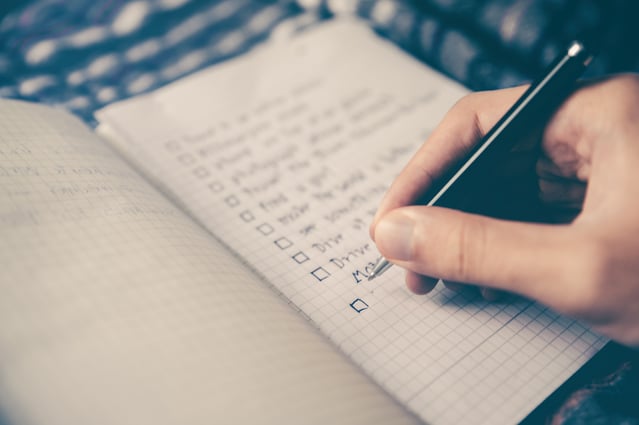How to Effectively Write Up Meeting Minutes
 Chloe Martin
·
2 minute read
Chloe Martin
·
2 minute read
Picture this, you're in an important meeting full of passionate colleagues and senior staff.
Conversation, ideas and topics are flowing at a rapid pace. As a minute taker, you're responsible for noting the most important parts of the meeting.
But how do you structure key points and which should you prioritise in a short space of time?
This is where we can help you.
When it comes to writing effective notes, you need to follow the discussion and identify the key points throughout. This doesn't mean noting every single word, but just the parts that your colleagues who couldn't attend need to know.
How to Effective Write up Meeting Minutes With Confidence
- Research Before the Meeting
- Don’t Include Every Detail
- Know When to Listen
- Don’t Complicate the Language
- Use the Third Person Register
- Write Objectively
Research Before the Meeting
Before you start, make sure you have a basic understanding of the meeting topic. Sometimes, a chairperson might ask you to produce an agenda in advance, so it’s essential you do some prior research.
Being sufficiently prepared will help you take useful notes, making it easier for you to produce clear and structured final minutes. The most important thing to remember about minute-taking is that speed is key.
Don’t Include Every Detail
Minutes aren’t a transcript of everything that was said during a meeting. Instead, they’re a summary of the main points and the following action points they decided upon.
Minutes are an official and legal record of a meeting so they need to be accurate. The three key things you’ll need to record when minute-taking are:
- What was decided?
- A description of what was achieved.
- The actions that need to be taken in the future.
It's good to include other specifics such as dates, meeting participants and time adjourned, but aim to avoid all the ‘he said, she said’ dialogue. Unless it’s relevant to the vital agenda points, leave it out.
Read our quick guide to presenting complex information with simplicity for more tips.
Know When to Listen
Once you’re confident in determining what parts of a conversation you should record, you’ll naturally learn when it’s best to sit back and listen. Often, it's more beneficial to stop note-taking at certain points to truly understand what’s happening during the meeting.
The ability to maintain your concentration and listen to what’s being said is key.
Don’t Complicate the Language
Keep information basic and language simple to avoid any legal complications that place the organisation at a disadvantage in any legal proceedings.
The rough notes you take at the meeting are for you, so you can use abbreviations and organise them in any way you like. However, don’t fall into the trap of using the same words repeatedly to describe the decisions that are made. Allowed, briefed, countered - switch up your vocabulary for readability.
Use the Third Person Register
When writing minutes, you need to use the past tense - the third person. For example, John Smith announced he would share the minutes shortly.
This helps you execute the next point easier too.
Write Objectively
Most importantly, minutes must be entirely neutral and not express any preference of ideas, attendees and decisions made.
If you need to take minutes of a meeting remotely, consider these points to ensure you produce minutes efficiently:
- Ask attendees to repeat themselves if you cut out
- Seek clarification on anything you’re unsure of
- Work in a quiet space
Put a Stop to Messy Notes With Our Free Minute Meeting Template
Effective minute-taking is a great skill to have in the public sector. We know it can be tough but we've created a simple meeting minute template that will get your notes organised in no time.
Download your free copy using the button below.
2+ years in SEO and content marketing. Striving to help public sector professionals develop their skills and learn something new through high-quality content.







